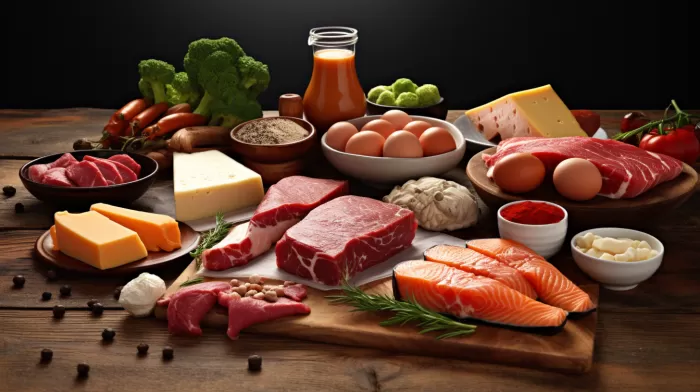Let’s face it, weight loss can be a challenging journey. But the real struggle often lies in losing body fat while preserving precious muscle mass. Why is this important? Losing muscle mass can slow down your metabolism, making it easier for you to gain weight back or feel like you’re hitting a plateau. The trick here is to focus on shedding fat and maintaining lean body mass to keep your metabolism revved up.
One of the most effective strategies for achieving this goal: Emphasize protein in your diet.
How Protein Supports Muscle Preservation
A study conducted by researchers at the University of Illinois and Penn State discovered that ensuring adequate protein intake can help individuals retain muscle mass while following a weight-loss plan. Additionally, these researchers found that consuming enough protein can lower a person’s risk of food cravings, which can help guard against overeating. A protein-rich diet may also provide protection against health issues such as heart disease and diabetes.
So, how does it work? According to the research, consuming a diet that is moderately high in protein can significantly improve your chances of hitting weight loss targets, while keeping your muscles intact.
The Study: Comparing Different Diets
To arrive at these conclusions, the researchers followed 130 individuals who were participating in weight-loss efforts at both the University of Illinois and Penn State. Half of the participants followed a moderate-protein diet, consisting of 40% carbohydrates, 30% protein, and 30% fat. The other half adhered to a diet based on the U.S. Department of Agriculture’s food-guide pyramid, which contained 55% carbohydrates, 15% protein, and 15% fat. Importantly, both groups consumed the same number of calories.
The results revealed that the group that followed a moderate-protein diet experienced greater success in preserving muscle mass during their weight loss journey. As researcher Donald Layman explains, “That’s important for long-term weight loss because muscle burns calories — if you lose muscle, and you used to be able to consume 2,000 calories without gaining weight, you’ll find that now you can only eat, say, 1,800 calories without weight gain.”
The Satiety Factor
Another key advantage of consuming an ample amount of protein: It keeps you feeling full for longer periods of time. “Subjects on the moderate-protein diet reported that they weren’t as interested in snacks or desserts, and they didn’t have food cravings. When you eat protein, you feel full longer,” Layman notes.
Feeling full can help curb unnecessary snacking or indulging in high-calorie treats, supporting even more successful weight loss.
Tips for Adding More Protein to Your Diet
Now that you know the benefits of including plenty of protein in your meal plan, you might be wondering how to go about it. Here are a few tips to help you boost your protein intake:
- Choose lean proteins: Opt for protein sources that are lower in fat and calories, such as chicken, turkey, fish, beans, and low-fat dairy products.
-
Include a protein source at every meal: Make an effort to add a protein-rich food to each meal, whether it’s a serving of yogurt at breakfast or a few ounces of grilled chicken at dinner.
-
Embrace plant-based proteins: There are plenty of plant-based protein options available, like lentils, quinoa, and tofu. These options can be more environmentally friendly and offer additional health benefits.
-
Experiment with protein-rich snacks: If you typically reach for a bag of chips or a cookie when snack time rolls around, try opting for a protein-packed option like a handful of almonds, a serving of Greek yogurt, or a piece of string cheese.
-
Consider a protein supplement: If you’re struggling to hit your daily protein target through whole foods alone, try incorporating a high-quality protein powder into your routine. Just make sure to choose a supplement that aligns with your dietary preferences and health goals.
Incorporating these tips into your meal planning strategy can help you build and follow a diet that supports weight loss and muscle preservation. By focusing on consuming adequate amounts of protein, you’ll be more likely to shed body fat, maintain lean body mass, and keep your metabolism firing on all cylinders.



